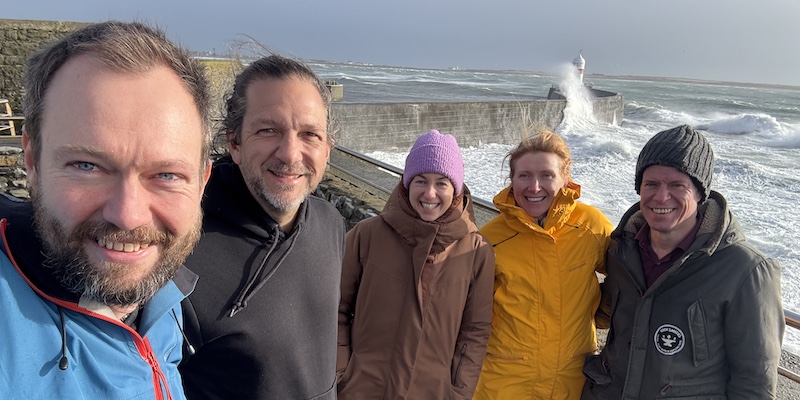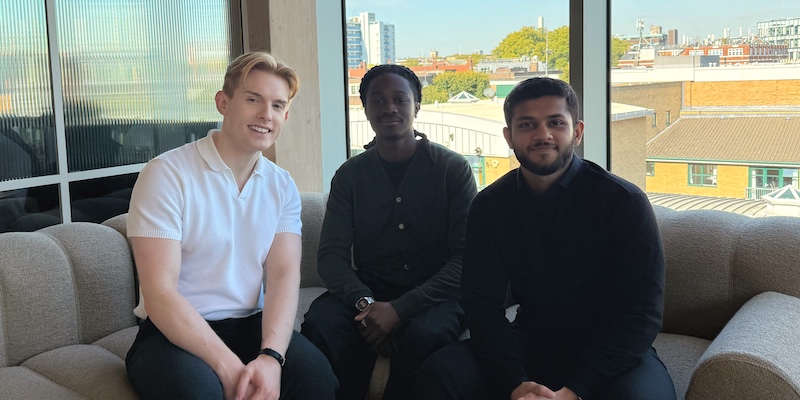
Meganne Houghton-Berry on Investing in Tech for Good
Female angel investors are, unfortunately, still somewhat of a rarity. According to recent research, they make up only 11% of Europe’s angel community. But with increased acknowledgement of this shortfall, and particularly the effect it has on female founders’ ability to raise early-stage capital, there are hopes this is changing.
Visibility is a good first step with the likes of Sifted’s list of 100+ Female angel investors in Europe. However one angel who has been active and public in the startup scene for many years now is Meganne Houghton-Berry. Meganne has over 25 years of experience in tech and consumer marketing and has a portfolio of investments in over 30 companies across a wide range of industries.
From intelligent textiles to waterless toilets, med-tech products to surplus farm produce and craft brewing. With a preference for working with companies at seed stage, she also often takes the role of mentor and is a serial board member. Many in the UK angel scene will know Meganne and even more so since she was awarded Angel of the Year by the UK Business Angel Association in 2018.
Meganne is a case in point of the benefit of female angels for founder diversity with over half of her portfolio companies having a female on the founding team. It’s not just better outcomes for founders that she cares about but also what those businesses are working on. Thanks to her keen interest in social impact investing we’ve known Meganne for a number of years and it was our pleasure to invite her to a recent panel discussion on this topic.
Here we’ve gathered her insights from that discussion. She talks about how she assesses founders, what support early-stage impact investors should be providing, and why food tech and med tech are areas she’s excited to see more innovation in.
How do you assess impact-driven entrepreneurs?
I’ve been part of various angel networks in the UK for a while and ClearlySo was an early example of a group of angel impact investors. When I first started investing in impact I was lucky enough to have a really good impact investor give me a briefing and she explained that there’s a spectrum from pure profit to pure impact. I think I'm probably less stringent in terms of how I define what I consider impact. My philosophy is to support entrepreneurs that struggle to find capital elsewhere, particularly in the early stages, and that are doing good for the world. I've always tried to be very careful when investing to understand what the entrepreneur is looking for, and to make sure it aligns with what I'm looking for. The last thing you want as an investor is to find that you're with an entrepreneur who wants to take the business in a completely different direction than what you understood. The way I do that? Well, when you've watched enough pitches you realise everybody has the same ‘Oh, we're going to exit in three to five years’ but what’s really important is having a conversation with them, and understanding what motivates them.One of the things that I like about investing in impact-driven entrepreneurs is that they have a consistency in their view and a consistency in their approach. That means you often have a good sense of where they're going and what's driving them. Whether or not you agree with it is a different story, but you do understand what's behind that passion. I think it’s important for founders to communicate that well to investors and make sure that they have investors that are along for the ride and are there to support the mission of what they're trying to achieve.
How do you work with angel syndicates?
One example of how I work with syndicates is a recent investment in cleantech which I did through a group of people who are all very knowledgeable in the space. So that gave me the reassurance to kind of just go along with it, rather than taking it on myself.Since my background is in marketing that’s what I can bring to due diligence. So I always try to understand where the business intersects with the end customer and whether their approach makes sense. That’s relevant for any business, whether or not it’s climate tech, education tech or otherwise. So I put my focus on those things and then to some extent trust my fellow investors on some of the diligence on the tech itself.
How do you think early-stage investors should approach impact measurement and management?
I think imposing metrics and reporting for early-stage companies is just cumbersome. I think you need to understand what the founders are trying to achieve and if the business is in itself inherently impactful. This means that if you succeed in delivering the business plan, you succeed in delivering the impact. I think what's important is helping the entrepreneur to start fine tuning answers to questions like how do we measure and talk about impact. This is especially true if they're going for institutional money, then they need to start really clarifying what their metrics are as certain funds have very specific expectations around this. But as an early-stage investor you don't want to be putting things in place that mean a founder has to step back from the business and figure it all out. They should just be an inherent part of the KPIs of the business.
What areas of tech for good are you most interested in investing in at the moment?
I've been doing a lot of investing in the food tech and sustainability space. I'm not a scientist so I have to work a bit around this but I find it a fascinating trend. Although I don't tend to lean too heavily on the consumer side of that, it's more about agriculture and how things are actually being produced, especially with protecting the planet in mind. I also do an awful lot on medical tech, particularly stuff that supports women's health because it's just been an issue that's been heavily underfunded over the years. Although even where the VCs have started to get into that it tends to be at a particular demographic, and it's not really a broad spectrum female. I've also always done stuff in education but I'm pausing on that at the moment to see how it all unfolds after this year. I'm quite concerned about young children that have had a very disrupted 18 months, and I think sadly the diversity and the inequity is just going to get much worse.
Want more investor insights? Check out our interview with impact pioneer and angel investor Charly Kleissner.





